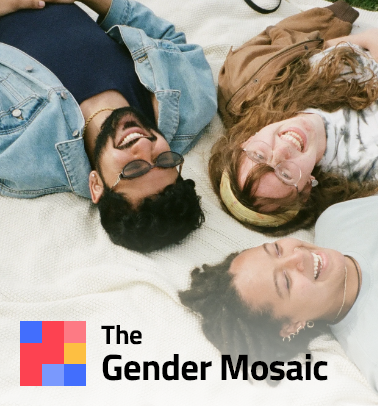

Find out more
The Gender Mosaic
Do you have a female or a male brain?
Are you from Mars or from Venus?
Was it nature or nurture that made you the person you are today?
Or are these the wrong questions?
In her groundbreaking research, Prof. Daphna Joel shows that even though sex-related genes and hormones affect the brain, the human brain is neither male nor female. Humans, and human brains, are made up of unique mosaics of traits, some that are more common in women, and others that are more common in men. This is also true of human gender characteristics – each individual possesses a unique mosaic of feminine and masculine traits.
Find out more about the brain and gender mosaic and about the science of the psychology of gender, in these articles.
Nature versus Nurture / Prof. Daphna Joel
People who are interested in gender differences often wonder about the source of these differences: are they a result of nature (that is, sex-related chromosomes and hormones) or nurture (the different ways in which society treats girls and boys, men and women – what we may call the gender system).
Read article
The Gender Mosaic Questionnaire (GMQ) / Prof. Daphna Joel
The aim of the Gender Mosaic Questionnaire is to enable people to discover their own unique gender mosaic* – that is, their unique mix of feminine (more common in women compared to men), neutral (similarly common in women and men), and masculine (more common in men compared to women) characteristics.
Read article
Gender Mosaic / Prof. Daphna Joel
You may be aware of having certain feminine characteristics (that is, those that are more common in women compared to men) and certain masculine ones. But did you know that all human beings probably have a mix of traits, each person having them in a unique combination?
Read article
Are Brains Male or Female? / Prof. Daphna Joel
Most humans are born with either male-typical genital organs or female-typical ones, so scientists and laypeople alike tend to assume that this binary distinction into male and female is also true of brains. Yet a careful reading of studies into sex and gender differences in the brain suggests otherwise.
Read article
Gender Differences in Psychology / Prof. Daphna Joel
People tend to refer to gender differences in absolute terms – women are like this, men are like that. Yet in reality, no gender difference can be described in this way.
Read article

